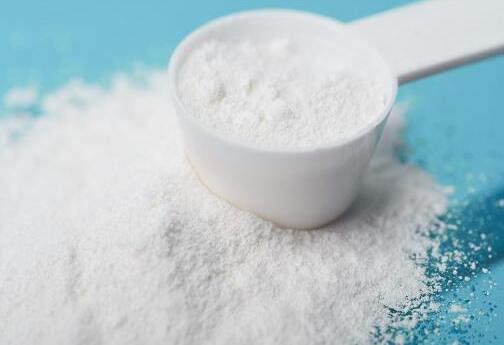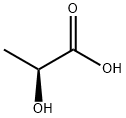L(+)-Lactic acid: Characteristics, Physiological Functions and Effects on Macrophage Polarization
L(+)-Lactic acid, known by the IUPAC systematic name 2-hydroxypropanoic acid, is a colorless liquid and very highly soluble in water.

Characteristics
L(+)-Lactic acid, also known as milk acid occurs naturally in several foods and is primarily found in fermented milk products, such as: sour milk, cheese, buttermilk and yogurt. Lactic acid also occurs naturally in meats, fruits, tomato juice, beer, wine, molasses, blood and muscles of animals, and in the soil.
Physiological Functions
L(+)-Lactic acid is a product of the anaerobic (without oxygen) phase of glucose metabolism (glycolysis) plant and animal cells use for energy. When insufficient oxygen is available for cells to derive maximum energy from glucose (e.g., bursts of spontaneous activity in muscle cells requiring more oxygen than is available) excess L-Lactic Acid is produced and diffuses out of the cells.
Use
Biochemical pesticide, currently L-Lactic Acid is used as a biting insect and mosquito attractant in traps.
Production
Lactic acid is produced industrially by bacterial fermentation of carbohydrates, or by chemical synthesis from acetaldehyde.1 As of 2009, lactic acid was produced predominantly (70–90%)by fermentation.
Toxicity
L-Lactic Acid has a very low pH (<1) and is a severe irritant. The acute toxicity studies for the technical grade active ingredient are limited because the test substance (80% L-Lactic Acid) has a very low pH and it is a severe irritant. Acute toxicity studies for oral, dermal, inhalation, dermal irritation and skin sensitization demonstrate the low toxicity potential of L-Lactic Acid.
Reference
1.H. Benninga (1990): "A History of Lactic Acid Making: A Chapter in the History of Biotechnology". Volume 11 of Chemists and Chemistry. Springer, ISBN 0792306252, 9780792306252.
You may like
See also
Lastest Price from L(+)-Lactic acid manufacturers

US $0.00/KG2025-08-30
- CAS:
- 79-33-4
- Min. Order:
- 1KG
- Purity:
- 99%
- Supply Ability:
- 2000KG

US $0.00-0.00/kg2025-07-25
- CAS:
- 79-33-4
- Min. Order:
- 1kg
- Purity:
- 99.86%
- Supply Ability:
- 1000kg


![9001-77-8 Phosphatase, AcidPhosphatase, Acid from wheat germfundamental biological reactions[1]. Plant aci](/NewsImg/2024-05-27/6385240244176750184422691.png)